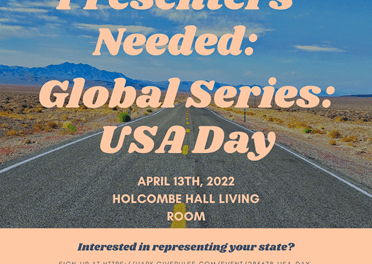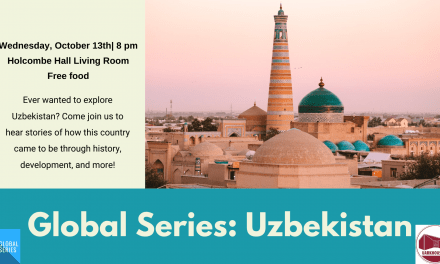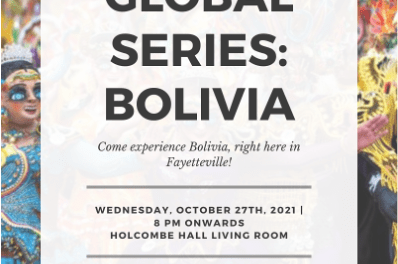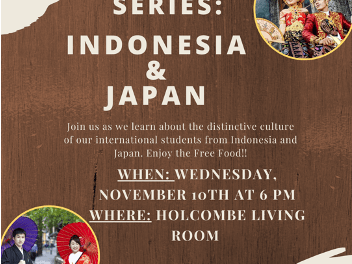By Natalia Frolov-Nickels
University Housing Graduate Assistant
Something every culture in the world can relate to is food.
It is at the root of human survival. Each nation, religion, and people have a different dish that has some sort of significance to them. Families gather to share a meal. Friends meet for lunch after time apart. Special occasions are made even more extraordinary by the dishes served. Meals allow for people to engage in dialogue.
The idea of “breaking bread” with someone else suggests dialogue, communication and peace. The food in different countries is representative of the people there; it gives us a glimpse into the history, agriculture, and cultural identity of an area.
Customs are likely to vary country to country.
In Japan, it is polite to loudly slurp your soup, so the chef knows you’re enjoying the meal. If you’re invited to a dinner party in France, you better show up with some French wine and flowers or chocolate. When you’re in Pakistan it’s okay to refuse seconds, but it will likely be easier (and more polite) to accept as the host will insist.
Despite these differences, we are all united through our commonalities. Sharing food with others and playing host is seen as an important part of society, and a large portion of social events and celebrations revolve around food.
In my family, food has always been important. If it is someone’s birthday, their favorite food will be made for dinner. If someone is ill, homemade chicken noodle soup will be created to make them feel better. Baked goods will be brought to neighbors during times of hardship, celebration, or just to say hello.
This isn’t something only my family does, people all around the world interact with food in similar ways.
As silly as it may sound, food allows us to break down barriers.
Cooking a traditional dish from your own culture with your family can allow you to learn about your own heritage. Sharing this dish with your friends can teach them about who you are, and what is important to you. We can stay connected to the people we care about by sitting down to eat, catching up, and checking in with one another.
Meals give us a safe space to connect.
If you are interested in learning about cultures around the world, be sure to like us on Facebook at Holcombe Global Series and follow us on Instagram at @holcombefutrall.
Recipes from around the world and discussions about cultural food etiquette and more can be found in both social media platforms!






Recent Comments